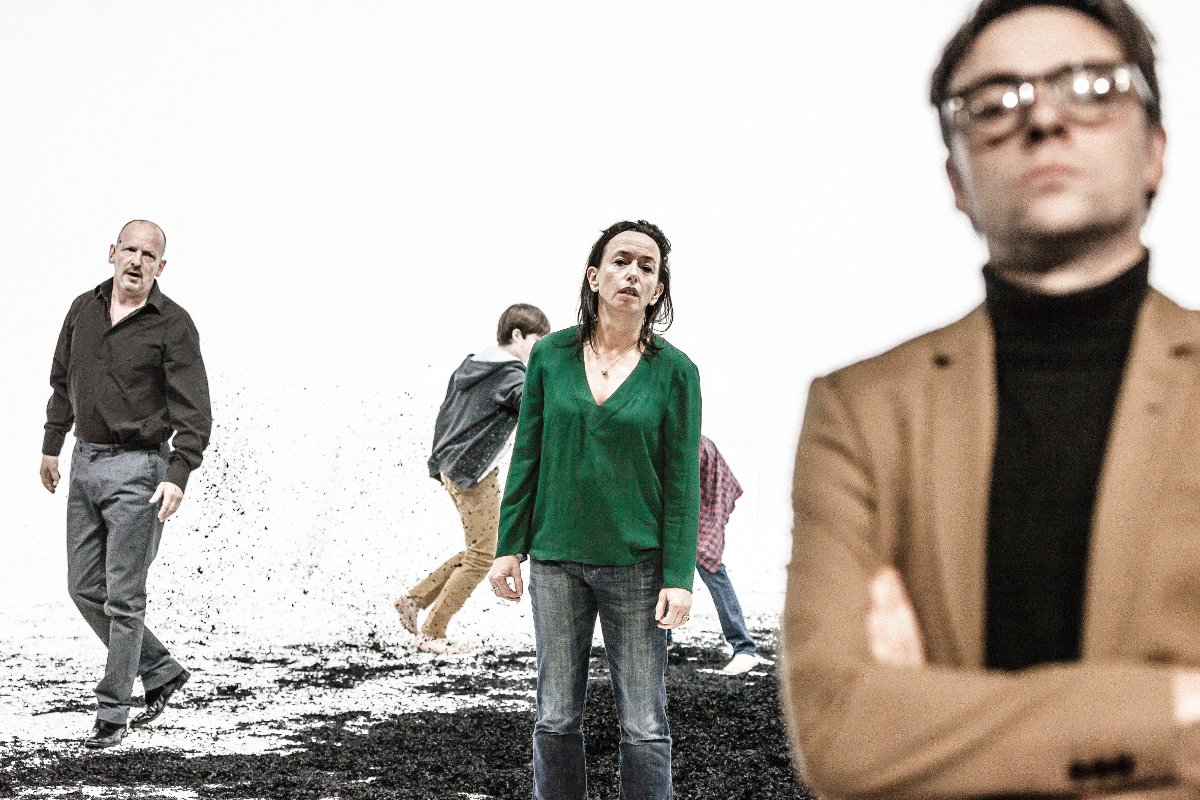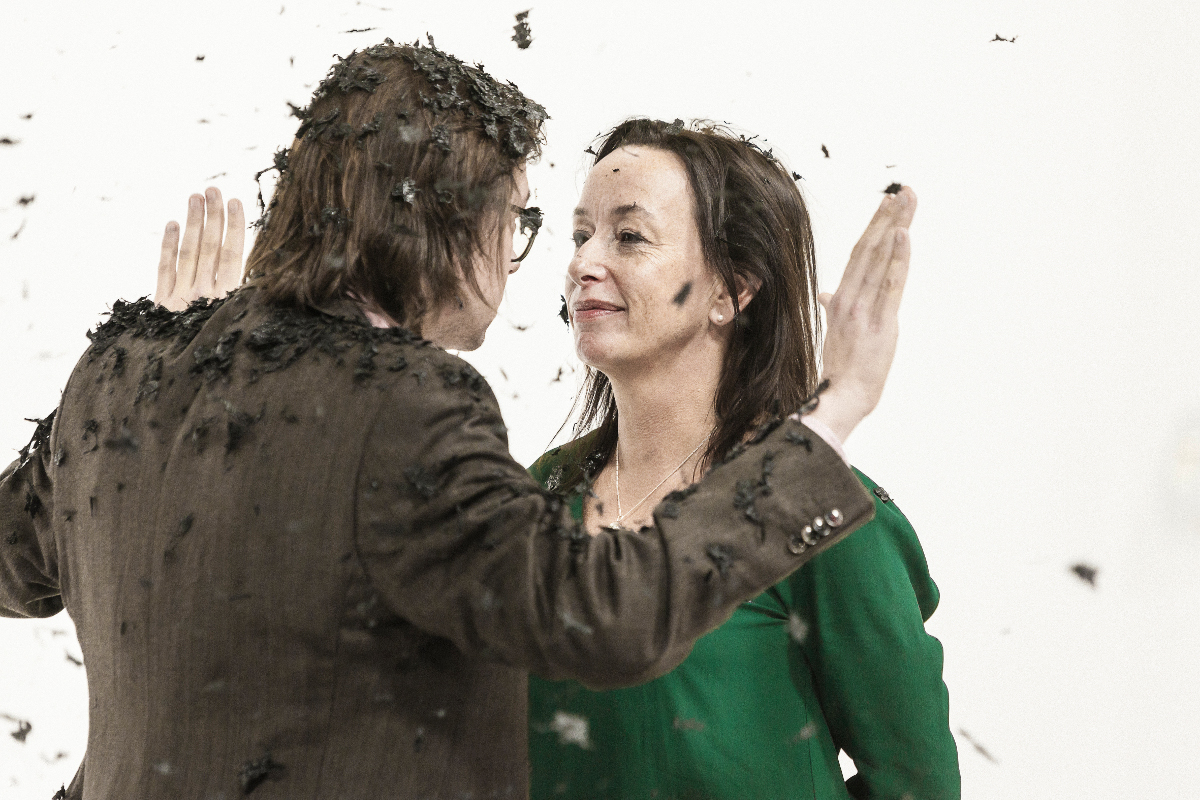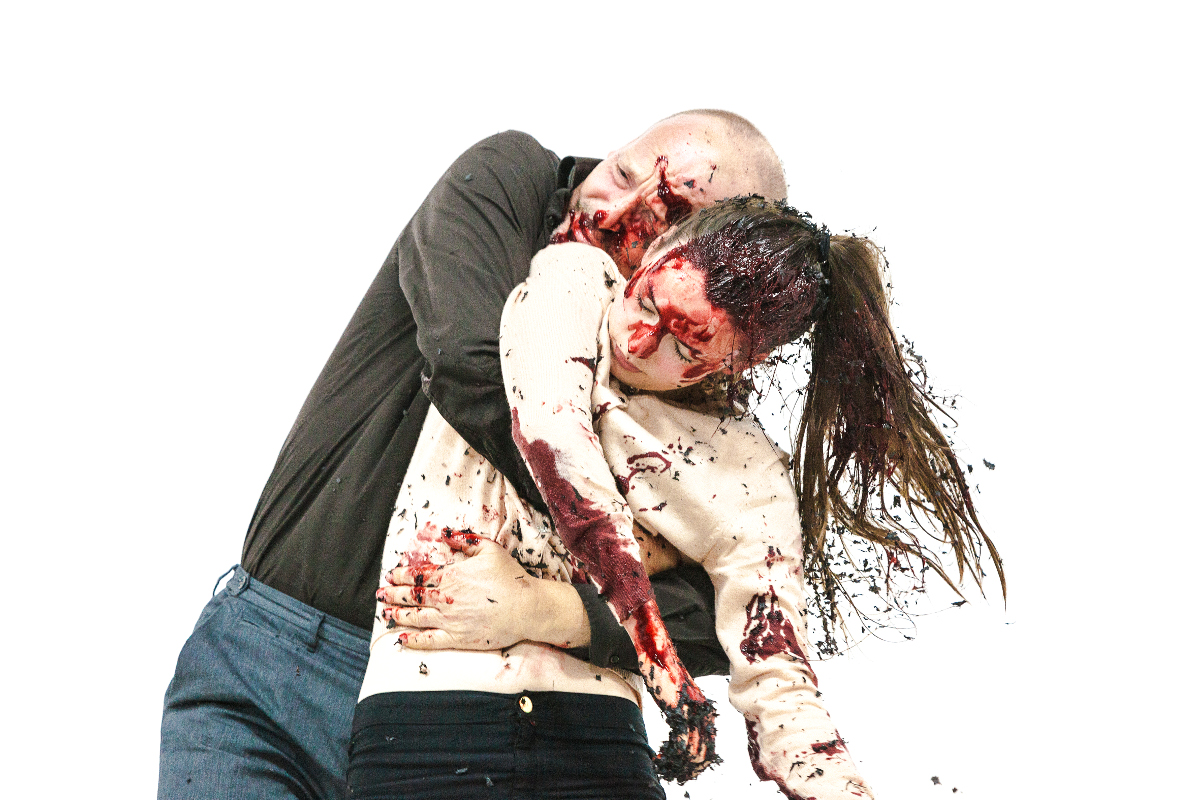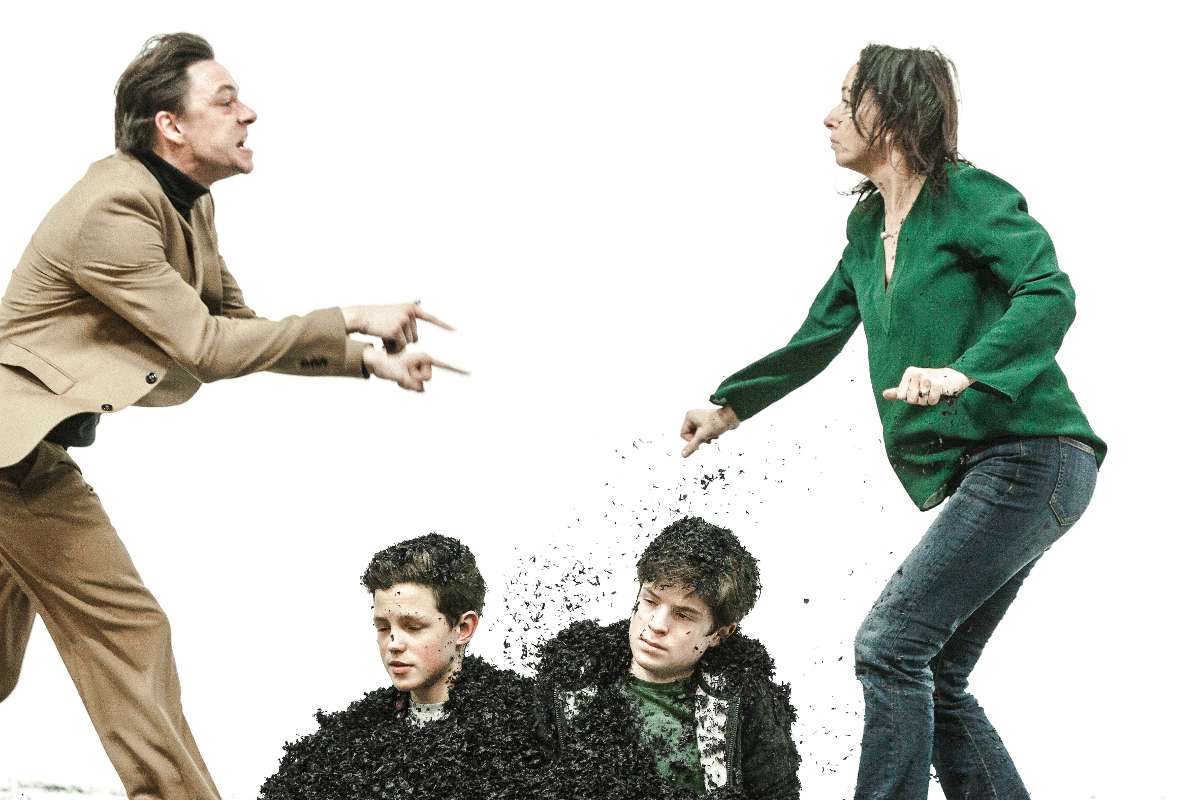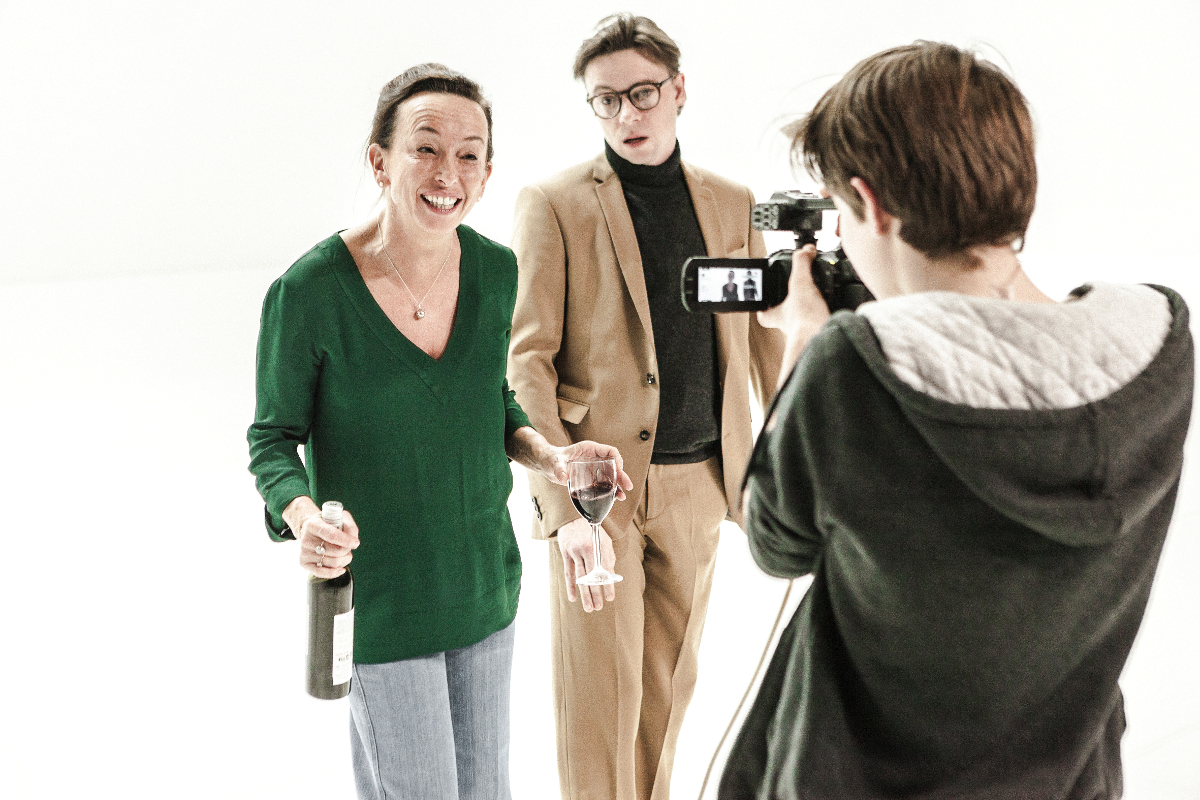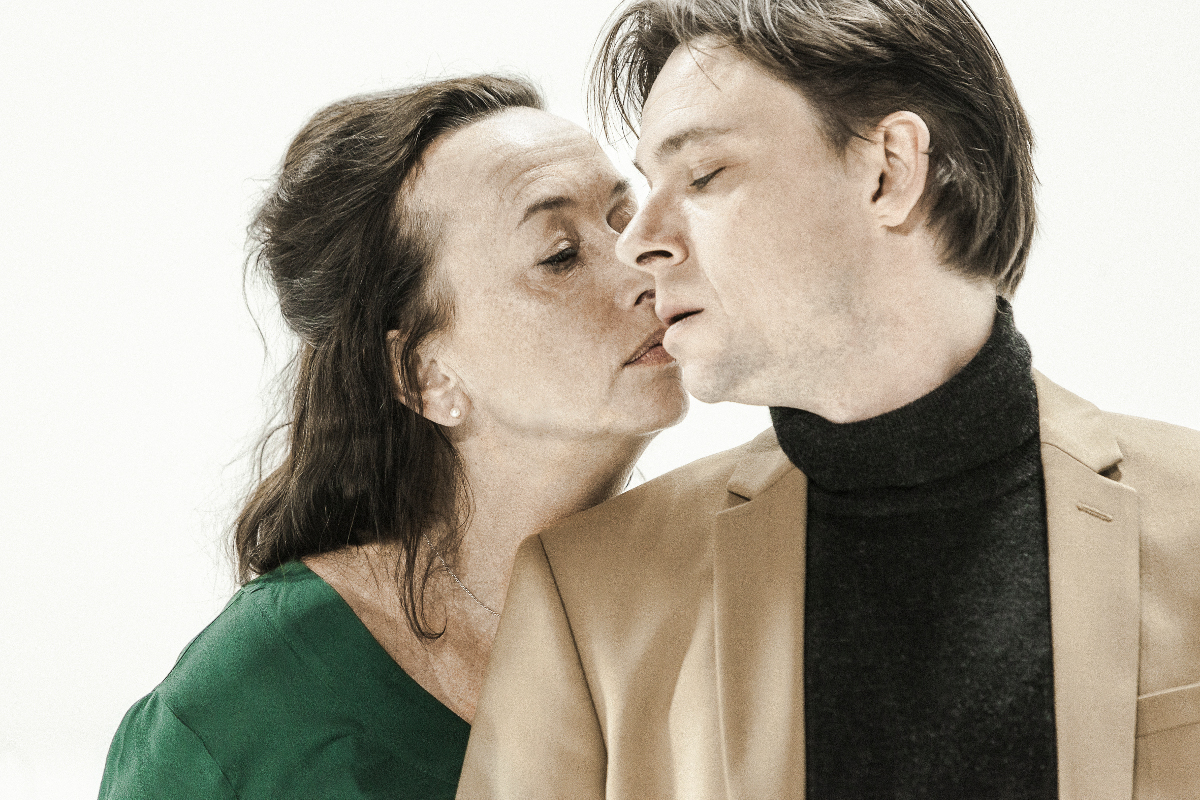Born in Switzerland to Australian parents, Simon Stone has rapidly made a name for himself across Europe through the quality of his work as company director and adaptations of classic works. In 2014, this multi-lingual globetrotter stopped off in Holland, at the invitation of Ivo Van Hove, director of Amsterdam’s Toneelgroup, to create his own personal vision of Medea. His encounter with the group produced a show of a compelling, urgent nature.
Stone’s approach is simple: he takes the word “adaptation” seriously. It goes without saying that the Euripidean tragedy is wonderfully poetic material in itself, but it also constituted, at the time, a rewriting of a pre-existing legend. By the same token, the horrific, true story of Debora Green (an American woman who killed two of her three children by setting the family home alight, after unsuccessfully attempting to poison her husband) is poignant indeed, but still amounts to nothing more than a news item spanning couple of lines. Unless, that is, an artist takes it up in order to stir up the same feelings of terror and pity within us. Like Euripides, Simon Stone’s work builds on re-imagining pre-existing stories. Just like any other newspaper reader he takes an interest in what is happening in the world around him. Thus, Greek secular tragedy and an incident from everyday life in mid-1990’s America, fiction and real life, bolster each other up.
In Stone’s version, specially composed by him for the actors based on their improvisations together, Medea and Jason become, respectively, Anna and Lucas. She is a pharmaceutical researcher who has just finished a stay in a mental institution. As for him, he is attracted to Clara, the seductive young daughter of his boss, a certain Christopher. She wants to pick up from where they left off, start again, rekindle their loving relationship. The play opens with the two of them speaking to each other in hushed voices, but with a distance of several meters between them. The stage is blindingly white, so much so that it would seem impossible to hide anything there. Close-ups of their faces are projected on huge screens. Anna does not see what Lucas can see: the wrinkles around her eyes, and fading lustre of her hair. The mythical magician has become a woman of today, cruelly exposed to the passing of her youth.
Their children too, are today’s children. They amuse themselves however they can. For example, they surprise their parents in bed together in order to film them as part of a school project on family life (Dad is considerably less impressed by this intrusion than Mum). Each of the boys has his own personality, and a name, a voice that the ancient version denies them. Simon Stone changes the focus from the mother’s solitude to the murder of her sons, from Medea’s overwhelming strangeness to the merciless logic at work in a drama played out by several characters.
“What could possibly drive a mother”, asks Stone, “to commit infanticide?”. As the play draws to an end, there is a growing sense of menace in the air, hardly noticeable at the start, but which goes from bad to worse, from a slight ache to the depths of sickness... Stripped to its bare essentials and dragged into our world, Medea’s act is no longer kept at a reassuringly safe distance. And she that accomplishes it, so close to us now, is just like her victims : human, too human, more than ever.
Cast
Dutch Translation Vera Hoogstad, Peter Van Kraaij
dramaturgy Peter Van Kraaij
scenography Bob Cousins
lights Bernie van Velzen
sound Stefan Gregory
costumes An D’Huys
production Toneelgroep Amsterdam
with the support of Fonds 21, Joost et Marcelle Kuiper
Length 1h20
,

